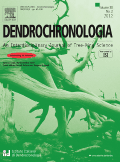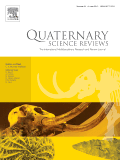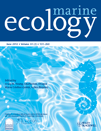
DENDROCHRONOLOGIA
metrics 2024
Connecting Nature's History with Today's Challenges
Introduction
Dendrochronologia is a prestigious journal dedicated to the study of tree rings and their implications for understanding environmental changes, climate variability, and ecological dynamics. Published by Elsevier GmbH in Germany, it has consistently reached high academic standards, holding a remarkable Q1 ranking in both Ecology and Plant Science as of 2023, demonstrating its significant impact within these fields. The journal aims to foster interdisciplinary dialogue through the dissemination of original research, reviews, and methodological advancements related to dendrochronology, appealing to researchers, students, and professionals who seek to deepen their knowledge of the interactions between terrestrial ecosystems and climate change. Although it does not currently offer an open access option, Dendrochronologia remains an essential resource for those in the scientific community, with valuable insights that contribute to the understanding of biodiversity and ecological resilience.
Metrics 2024
 0.85
0.85 2.70
2.70 2.90
2.90 57
57Metrics History
Rank 2024
Scopus
IF (Web Of Science)
JCI (Web Of Science)
Quartile History
Similar Journals

Ecological Processes
Connecting theory and practice in ecological processes.Ecological Processes, published by Springer, is a premier open-access journal dedicated to advancing the understanding of ecological modeling and ecological processes. With a significant impact factor evidenced by its prestigious Q1 ranking in both Ecological Modeling and Ecology categories, as well as impressive Scopus rankings—41st out of 461 in Environmental Science and 7th out of 41 in Ecological Modeling—this journal is a vital resource for researchers, professionals, and students alike. Established in 2012 and operating under an open-access framework since its inception, Ecological Processes strives to provide a platform for high-quality research that addresses critical ecological challenges, ensuring wide dissemination of its articles to a global audience. The journal's focus encompasses various aspects of ecological modeling as well as practical implications for managing natural resources, making it an essential publication for anyone interested in the dynamics of ecological systems and their implications for sustainability.

Neotropical Biodiversity
Championing biodiversity for a sustainable tomorrow.Neotropical Biodiversity is a prominent journal dedicated to advancing our understanding of biodiversity and ecological dynamics within the Neotropical region. Published by TAYLOR & FRANCIS LTD in the United Kingdom, this Open Access journal has been providing unrestricted access to research findings since 2015, fostering collaboration and knowledge sharing among the global scientific community. With an emphasis on innovative research in Ecology, Ecology, Evolution, Behavior and Systematics, and Global and Planetary Change, it has earned a reputation for excellence, currently holding a Q3 category in its field. As of 2023, the journal ranks in the 37th percentile for Environmental Science (Ecology) and in the 36th percentile for Agricultural and Biological Sciences (Ecology, Evolution, Behavior and Systematics), making it a valuable resource for researchers, professionals, and students interested in understanding and preserving biodiversity in one of the world's most diverse ecosystems. We invite you to explore the cutting-edge research published in Neotropical Biodiversity and contribute to the ongoing dialogue for environmental sustainability and ecological resilience.

Dendrobiology
Cultivating insights for a greener future.Dendrobiology is a distinguished academic journal published by BOGUCKI WYDAWNICTWO NAUKOWE, focusing on the intricate and essential disciplines of forestry and plant science. Since its inception in 2000, the journal has served as a critical platform for the dissemination of high-quality research, advancing our understanding of dendrology and its vital role in ecosystem management and biodiversity conservation. With impressive rankings in Scopus—placing it in the second quartile for Forestry and third quartile for Plant Science—Dendrobiology is recognized for its impactful contributions to the field, with a focus on innovative methodologies and sustainable practices. Although it currently operates under a conventional publishing model, the journal emphasizes accessibility and engagement, catering to a broad academic audience, including researchers, practitioners, and students who are keen to explore pioneering research and developments. By fostering a collaborative academic dialogue, Dendrobiology aims to bridge theoretical foundations with practical applications, ensuring relevance in today’s rapidly evolving fields.

Quaternary Science Reviews
Connecting Disciplines Through Quaternary InsightsQuaternary Science Reviews is a premier international journal published by PERGAMON-ELSEVIER SCIENCE LTD, dedicated to the multidisciplinary study of the Quaternary period and its implications across a variety of scientific fields, including archaeology, geology, ecology, and environmental science. With an impressive impact factor that places it in the Q1 quartile across multiple categories such as Archaeology, Ecology, and Geology, it stands as a beacon of scholarly excellence. The journal, which has been in circulation since 1982 and converges its knowledge through to 2024, is instrumental for researchers and professionals seeking to explore the complexities of climate change, biodiversity, and earth systems. Though it does not currently offer Open Access options, its well-curated content remains vital for academic advancement and is accessible to a broad audience through institutional subscriptions. Positioned at the forefront of modern scientific inquiry, the journal fosters an environment for sharing pivotal findings and fostering intellectual discussions, making it an indispensable resource for students, practitioners, and researchers alike.

TREES-STRUCTURE AND FUNCTION
Transforming understanding of tree physiology and ecology.TREES - STRUCTURE AND FUNCTION, published by Springer Heidelberg, is a leading journal dedicated to advancing the scientific understanding of tree biology through rigorous research and interdisciplinary approaches. With an impressive impact factor reflecting its high visibility in the scholarly community, this journal specializes in various aspects of tree ecology, physiology, and structure, making it a vital resource for researchers, professionals, and students engaged in forestry and environmental sciences. The journal holds notable rankings, placing it in the top quartiles of several categories, including Q1 in Forestry and Q2 in Ecology as of 2023, underscoring its relevance and influence in the field. Although it is not an open-access journal, TREES strives to disseminate critically important findings that contribute to our understanding of global forest ecosystems and their role in climate change mitigation. With a publication history spanning from 1986 to 2024, this journal continues to shape the future of tree research, providing a platform for innovative studies that inform policy, conservation, and sustainable practices.

IAWA JOURNAL
Advancing Knowledge in Forestry and Plant ScienceIAWA JOURNAL is a distinguished academic publication dedicated to the fields of forestry and plant science, published by BRILL, a reputable name in scholarly publishing. With an ISSN of 0928-1541 and an E-ISSN of 2294-1932, the journal has garnered impressive rankings within Scopus, placing 48th in Forestry and 182nd in Plant Science, indicating its strong influence and relevance in these scientific areas. Operating from the Netherlands, the IAWA JOURNAL focuses on a broad scope of research themes, contributing to the advancement of knowledge from its inception in 1980 and continuing robustly through to 2024. With a Category Quartile of Q2 in Forestry and Q3 in Plant Science as of 2023, the journal serves as a vital resource for researchers, professionals, and students alike, facilitating the exchange of innovative ideas and significant findings in the plant biology community. Although the journal does not currently offer open access, it remains a pivotal platform for disseminating high-quality research that shapes the future of the ecological and environmental sciences.

FOLIA GEOBOTANICA
Advancing the frontiers of plant science and paleontology.FOLIA GEOBOTANICA, published by Springer, is a distinguished journal dedicated to advancing the fields of Paleontology and Plant Science through the dissemination of high-quality research. With an ISSN of 1211-9520 and an E-ISSN of 1874-9348, this journal has been pivotal in providing a platform for innovative studies from 1994 to 2024. Notably, FOLIA GEOBOTANICA holds a Q3 ranking in Paleontology and a Q2 ranking in Plant Science as of 2023, affirming its relevance and contribution to the scholarly community. The journal is located in the Netherlands at VAN GODEWIJCKSTRAAT 30, 3311 GZ DORDRECHT, and is not an Open Access publication, ensuring comprehensive review processes and scholarly integrity. With Scopus rankings that place it in the 50th percentile for Plant Science and 46th for Paleontology, FOLIA GEOBOTANICA continues to attract researchers, professionals, and students who are keen to explore the intricacies of plant ecology and fossil records, thereby fostering a deeper understanding of ecological and evolutionary patterns.

Marine Ecology-An Evolutionary Perspective
Pioneering Research in Aquatic EvolutionMarine Ecology-An Evolutionary Perspective, published by WILEY, is a renowned journal dedicated to advancing the understanding of marine ecosystems through the lens of evolutionary biology. Established in 1980, the journal has firmly positioned itself as a vital resource in the field, currently boasting a 2023 Scopus rank of #337 in Ecology, Evolution, Behavior and Systematics and a Q2 category ranking in Ecology. With a focus on original research and reviews that encompass a broad spectrum of marine ecological studies, this journal critically examines the mechanisms driving marine biodiversity and ecosystem dynamics. Researchers, professionals, and students alike benefit from the journal’s comprehensive insights and robust analyses, which are pivotal for fostering ecological knowledge and informing conservation efforts. Although currently not an Open Access publication, the journal remains accessible through various academic platforms, inviting the scientific community to engage with its vital contributions to aquatic science and the evolutionary processes shaping our oceans. With an impressive trajectory that extends until 2024, Marine Ecology-An Evolutionary Perspective continues to set benchmarks in marine research.

Regional Environmental Change
Exploring the Dynamics of Environmental TransformationRegional Environmental Change, published by SPRINGER HEIDELBERG, is a leading journal dedicated to the critical field of Environmental Science, specifically focusing on the global and planetary changes affecting our regional environments. Since its inception in 2005 and continuing through 2024, the journal has been a pivotal platform for disseminating cutting-edge research, insights, and methodologies that address pressing environmental issues. With an impressive Scopus rank, placing it in the top 30% of journals in its category, Regional Environmental Change (ISSN: 1436-3798; E-ISSN: 1436-378X) showcases high-quality academic articles that engage with the multifaceted impacts of environmental shifts, providing researchers, professionals, and students with vital knowledge and data. Although the journal does not currently offer Open Access, it remains a crucial resource for those committed to understanding and mitigating the effects of environmental change on regional ecosystems and communities.

Theoretical Ecology
Shaping ecological research with cutting-edge theoretical frameworks.Theoretical Ecology, published by SPRINGER HEIDELBERG, is a premier journal in the field of ecological modeling and theory, exemplifying the intersection of rigorous quantitative analysis and ecological understanding. With its ISSN 1874-1738 and E-ISSN 1874-1746, this journal has been a valuable resource for researchers since its inception in 2008, with a commitment to publish cutting-edge research until 2024. The journal's 2023 category quartiles demonstrate its impact, ranking Q3 in Ecological Modeling and Q2 in Ecology, reflecting its significance within the academic community. Furthermore, its Scopus rankings position it among the top tier of environmental science journals, ranking #181/461 in Ecology and #21/41 in Ecological Modeling. While the journal does not offer open access, it is an essential publication for those looking to deepen their understanding of theoretical frameworks that drive ecological research and practice. By providing a platform for innovative theories and models, Theoretical Ecology plays a crucial role in shaping future ecological studies and informing policy decisions in environmental management.